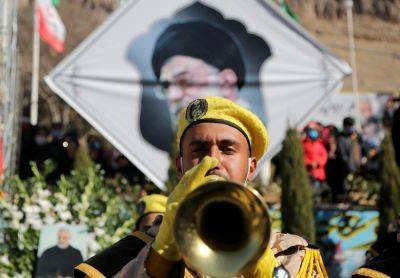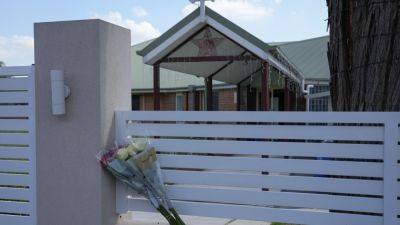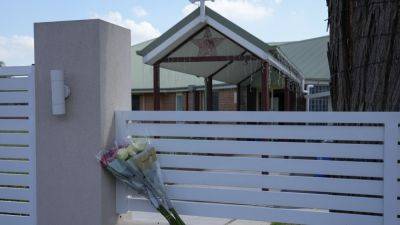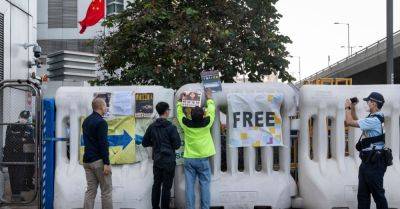Sydney boy accused of stabbing 2 clerics showed no signs of radicalization, Muslim leader says
SYDNEY (AP) — A boy accused of stabbing two Christian clerics during a Sydney church service might have “anger management and behavioral issues” and a “short fuse” but had shown no signs of being radicalized, a community leader said on Thursday, after authorities declared the stabbing a terrorist attack.
The boy spoke in Arabic about the Prophet Muhammad being insulted after he stabbed Bishop Mar Mari Emmanuel and the Rev. Isaac Royel during Monday night’s Assyrian Orthodox service, which was being streamed online.
The bishop released an audio statement on Thursday saying he was “doing fine, recovering very quickly” and that he forgave his attacker.
Jamal Rifi, a Sydney doctor and Muslim community leader, said the boy had apologized when his family visited him in the hospital on Tuesday and Wednesday.
“He kept apologizing to his mum and saying sorry and all that sort of thing, and he showed remorse for what he did,” Rifi told Sydney Radio 2GB. Rifi said he spoke on Wednesday with the boy’s parents, sister and an uncle who all condemned the boy’s actions. The family had relocated from their home since the attack to avoid retaliation.
The family had seen no signs of radicalization.
“(The boy’s mother) expressed to me that he always listened to music, he played the drums, he actually danced to the music. A radical person… would not do that,” Rifi said.
“She said that he had trouble in his life, had anger management issues, a short fuse and for no valid reasons, he just gets angry,” he added.
The boy had seen three psychologists, a school counsellor and had an appointment to see a psychiatrist. The mother was told her son might have a “an autism spectrum disorder or anger management and behavioral issues, but there is no clear







